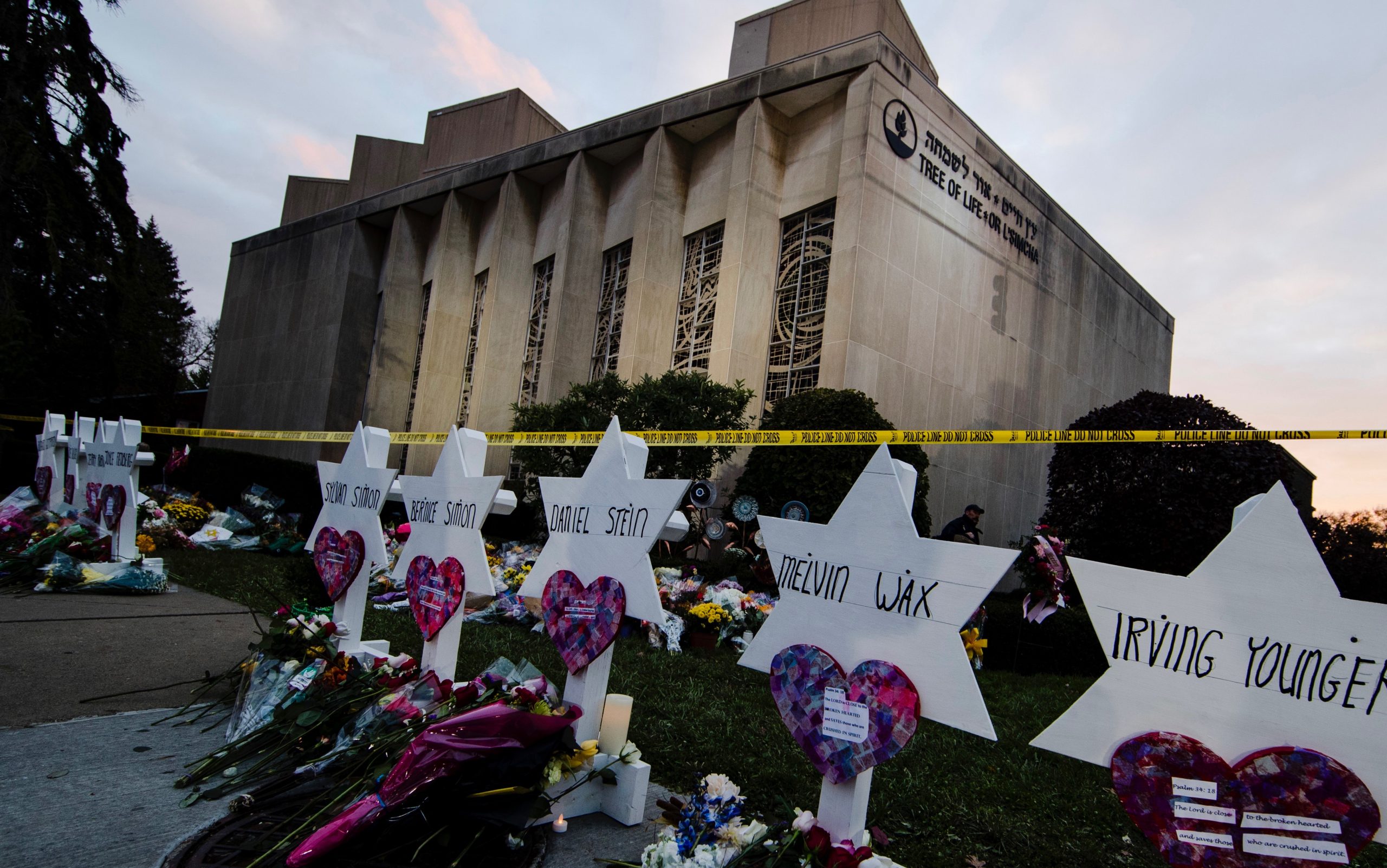For most of our nation’s history, cities and towns had the authority to regulate guns. From colonial Boston and frontier towns like Dodge City and Tombstone to the metropolises of New York and Chicago, localities typically restricted guns more heavily than the states or territories in which they were located.
With a few exceptions, that’s less true today because 43 states have what are known as “preemption” laws, prohibiting local governments from enacting gun regulations that are stricter than those passed by state legislatures.
Tobacco companies looking to head off regulation pioneered this approach to limiting local law-making in the 1960s and ‘70s. But in the last few decades, the National Rifle Association has taken the strategy much further through its supporters in state legislatures, repeatedly using preemption to successfully block local gun reform efforts. The threat of lawsuits against cities that run afoul of the legislation has had a chilling effect on local officials across the country, even in deep blue states like California.
As we’ve reported news stories about preemption at The Trace, readers have asked for more information on the laws’ scope and limitations. Here’s the background on the well-funded effort to block local gun reform, and the movement to beat it back.
What exactly is preemption?
In constitutional law, preemption refers to the legal supremacy of higher levels of government. In the United States, federal law trumps legislation enacted by states, should they conflict, and state law trumps city or local law. In the context of firearms, a typical preemption law says that the state legislature occupies “the whole field” of firearms regulation, declaring municipal ordinances, like assault weapons bans or mandatory reporting of stolen guns, “null and void.”
Critics of these laws say that local lawmakers know what’s best in terms of public safety. By contrast, the NRA argues that states need a uniform system of gun regulations, not “a confusing patchwork of gun control laws” that varies from jurisdiction to jurisdiction. Todd Rathner, a lobbyist for the Arizona State Rifle and Pistol Association, told us in 2016 that local governments trying to pass their own regulations contribute to an “overall pattern of abuse.” “Since these municipalities continue to play these games,” he said at the time, “we needed to add a penalty mechanism to the statute to put them back in their boxes.” (The 2015 law was later found unconstitutional.)
Gun regulation isn’t the only thing that’s off limits to local lawmakers. Some states specifically forbid the creation of local laws around fracking, minimum wage hikes, sick leave, soda taxes, and non-discrimination protections for LGBTQ people. But none of those efforts have been as successful as gun law preemption.
The gun lobby began using preemption as a tool in 1981, when local officials in Morton Grove, Illinois, passed a handgun ban. The village hoped the move might inspire their counterparts across the country to pass similar bans, but local gun rights groups sued and the NRA used the publicity to mobilize its members to push for state preemption laws. The NRA then hit on a strategy it still employs today: teaming up with state-based gun rights groups to challenge local gun laws in court. Since then, dozens of cities have been forced to scrap their laws, making preemption one of the NRA’s hallmark legislative strategies.
How many states have preemption statutes for firearms?
Currently, 43 states broadly preempt localities from enacting their own gun laws. That includes such gun reform strongholds as Washington state and Maryland. California and Colorado have laws that preempt local governments from regulating specific things like gun permitting and registration, and carrying guns in private vehicles, respectively, but otherwise allows cities and towns to regulate guns.
These States Prevent Cities From Enacting Tougher Gun Laws
The vast majority of states have preemption laws, which prohibit cities, counties, and other localities from enacting gun laws that are stricter than the state’s.
The five states that allow cities to enact their own gun laws largely without restriction — Connecticut, Hawaii, Massachusetts, New Jersey, and New York — are also the states with the lowest rates of gun death.
Are preemption laws the same as ‘Second Amendment Sanctuary’ laws?
No. States pass preemption laws to prevent their cities and counties from enacting stricter gun laws, while so-called Second Amendment Sanctuary laws are usually passed locally in an attempt to reject stricter state or federal gun laws.
Several states have also passed “Second Amendment Preservation” bills, which, like local sanctuary resolutions, argue that gun restrictions are unconstitutional. These laws typically attempt to exempt certain firearms from federal regulation, or bar state and local officials from assisting in the enforcement of federal firearms laws. These laws are largely seen as symbolic, but in Missouri, law enforcement groups said the state’s version of the law undermined trafficking investigations and it was struck down in March 2023.
How is preemption enforced?
Typically through litigation. Gun groups can sue local governments and argue that firearms ordinances violate a state’s preemption law. These lawsuits are costly, and often compel cash-strapped municipalities to abandon their gun ordinances rather than risk a huge payout. The most punitive preemption laws force cities that lose in court to pay the plaintiffs’ legal fees.
In 2015, after Pennsylvania passed a law allowing outside groups like the NRA to sue over preemption, nearly 100 municipalities scrambled to roll back their gun regulations. “We’re basically being forced to repeal these laws at gunpoint,” Det Ansinn, the president of the Doylestown Borough Council, said at the time. And in 2017, as cities across the country considered passing bump stock bans after the Las Vegas massacre, the City Council in Tucson, Arizona, backed down from its own ban after the city attorney told local lawmakers that their hands were tied by preemption.
Even in more liberal states like California, which has a more lenient preemption law, local efforts to pass stricter regulations still face scrutiny. In 2018, officials in Palm Springs rescinded an ordinance requiring gun owners to report missing weapons to police within 48 hours. The NRA had been threatening to sue the city.
Some preemption laws go so far as to punish individual lawmakers for spearheading gun laws. In Florida, local officials can be subjected to a state-imposed fine of up to $5,000, and in seven states — Florida, Iowa, Kentucky, Minnesota, Mississippi, Oklahoma, and Tennessee — they can be personally sued and ordered to pay damages and attorneys’ fees to the winning side of a lawsuit. In most cases, that’s the NRA or its local affiliates. In Arizona, cities can face penalties of up to $50,000 and local officials can be removed from office. And in Kentucky, local lawmakers can be criminally charged with official misconduct for violating that state’s preemption law.
Do cities ever defeat the gun lobby in court?
Yes. In 2017, a Florida appeals court upheld Tallahassee’s gun ordinances, which made it illegal to fire guns in city-owned or operated parks.
In 2018, a Montana judge rejected an opinion from the state attorney general and upheld Missoula’s 2016 universal background check ordinance, which the Montana Shooting Sports Association and the NRA had sued to overturn. While Montana law may preempt gun regulations, Missoula adopted a self-government charter that imbues the city with the authority to craft its own regulations, the judge ruled.
Another example involved the Chicago suburb of Deerfield, Illinois, which banned assault-style weapons and high-capacity magazines in 2018. Less than 48 hours later, a local NRA affiliate sued to block the bans on the grounds that they violate the state’s preemption law. Initially, a judge prevented the ordinances from taking effect, but in 2020, an appellate court allowed the ordinance to take effect, and the Illinois Supreme Court upheld the local law a year later.
Have any states ever overturned or relaxed their preemption statutes?
After the 2021 Boulder shooting, Colorado became the first state to broadly repeal the majority of its firearms preemption statute, according to Giffords Law Center. The state General Assembly amended the law to say that “the regulation of firearms is a matter of state and local concern.” The change allows local governments to pass gun regulations while retaining the state’s power to preempt laws governing travel with guns in private vehicles.
In 2022, California passed legislation that relaxed its already limited preemption law. The revised law allows localities to pass gun regulations stricter than state law, as long as they don’t interfere with a few discrete areas like licensing, permitting, or registration.
In 2017, Tennessee gave municipalities the authority to keep guns out of public buildings, parks, and buses. But it came with a strict set of NRA-endorsed rules: Cities that choose to ban guns in those places are required to erect metal detectors and hire security guards. The change was opposed by local authorities, who argued that it would impose huge costs on cities that want to limit guns in public.
So what’s next in this tug of war between city and state?
Several cities are waging ongoing court battles to retain their local regulations, and these challenges are likely to continue.
In Ohio — a state that typically provides local governments a great deal of authority to self govern, except in the realm of firearms — the office of the attorney general and the city of Columbus are locked in a years-long court dispute over a local ordinance banning large-capacity magazines and requiring safe storage. And Philadelphia, where firearm homicides spiked since the pandemic began, has repeatedly sued to get Pennsylvania to allow it to enact local gun regulations. Several of those cases are still pending or on appeal, but the city hasn’t seen success, leading the City Council to call on the state Legislature to suspend the state’s preemption law.
There’s also a movement among some state lawmakers to relax or outright repeal their state’s preemption law, but so far, Colorado is the only state to do so. In Washington, for example, a Democratic state representative proposed a bill during the 2023 legislative session that would have allowed cities to pass local regulations, but the bill did not pass.
Correction: We’ve updated this article to clarify information about Pennsylvania’s preemption laws.

